SPH Plugs In: Fall Favorites.

SPH Plugs In: Fall Favorites
Members of the SPH community share their recommendations for several books and a film that resonated with them, given their public health studies, research, and practice.
School of Public Health community members share their recommendations for content that has recently resonated with them and that they feel others in public health might appreciate:
Fixer Upper: How to Repair America’s Broken Housing Systems / Grace Reynolds
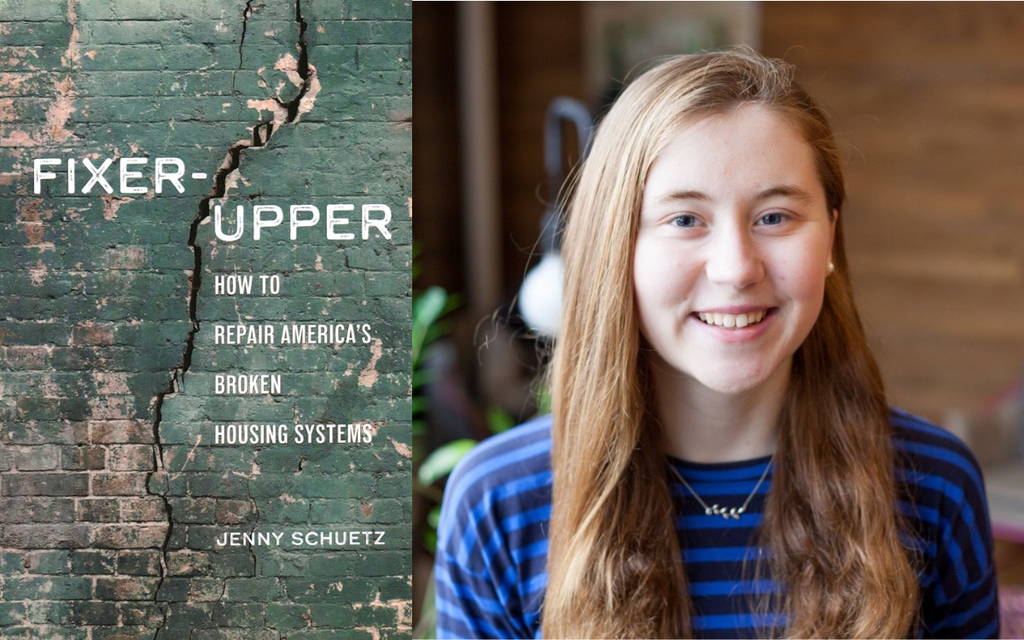
Grace Reynolds, an MPH student studying health policy and law and epidemiology and biostatistics, recommends the book Fixer Upper: How to Repair America’s Broken Housing Systems by Jenny Schuetz. The 210-page work of nonfiction discusses how climate change is putting the country’s housing infrastructure at risk and draws attention to how zoning laws have hindered new housing development from keeping up with demand.
Reynolds read the book shortly before learning she had been named a 2025 Rappaport Public Policy Fellow. She spent 10 weeks during summer 2025 helping MassHealth investigate the effects of extreme heat on the use of emergency health services in Massachusetts. She appreciated that the book intersected with several of the themes she encountered in her project, including housing, climate, and public health. Given the high cost of living in the Boston area, she suspects that other SPH students will also appreciate the book. “I thought it did a great job of helping me to at least understand the various barriers to housing,” says Reynolds.
Talking to Humans / Sanjiv Gupta

Sanjiv Gupta (SPH‘25), who completed certificates in healthcare management and pharmaceutical development, delivery, and access as an MPH student, recommends the book Talking to Humans: Success starts with understanding your customers by Giff Constable.
Gupta was recommended the book by a mentor he had during Innovate@BU’s Summer Accelerator. Gupta founded and piloted a telehealth company in Nepal during the intensive ten-week program, which provides select BU students with mentorship and financial support as they work to launch an early-stage venture
“I would suggest [the book] not only to entrepreneurs, but every individual should at least read [it] once in their life,” says Gupta. “It’s non-fiction. It basically [talks] about [how with] the rise in the technology, we’re losing the human touch, and the more we talk to [other] humans, we learn from them what are the gaps that we can fulfill. Then, we can bridge those gaps, especially in the healthcare. We need to do that a lot, especially as a public health leader. Everyone should talk to everyone so that we can understand the real problem more in depth and then come up with a solution that could be fitted for everyone.”
Having returned to Nepal following graduation, Gupta has big ideas for how to use technology constructively to advance health equity. He hopes to do just that in a new advisory role with Nepal’s Ministry of Healthcare.
Everything is Tuberculosis: The History and Persistence of Our Deadliest Infection / Anushka Marri
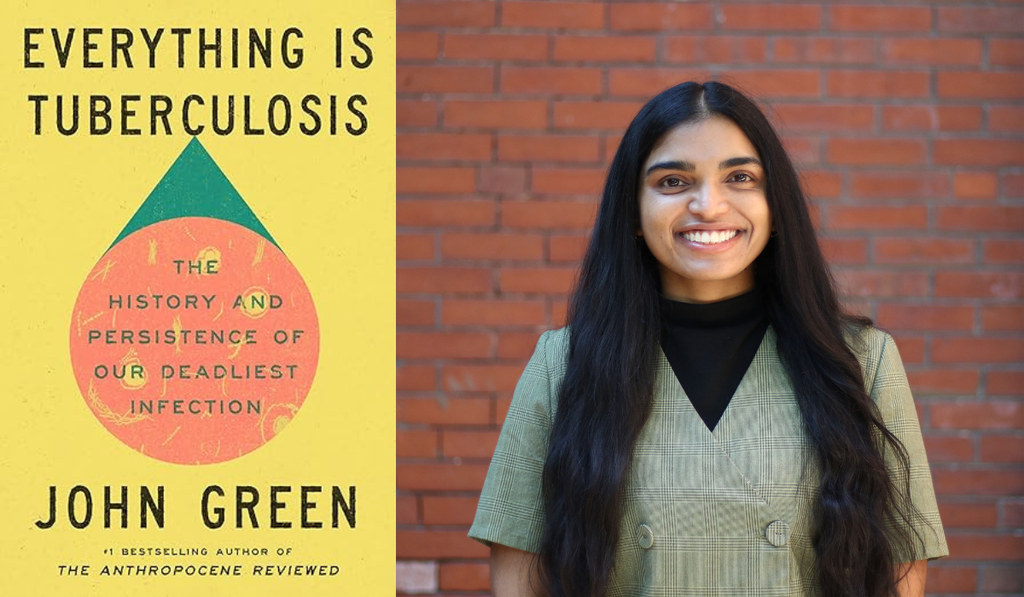
Anushka Marri (SPH‘25), a research fellow in the Department of Global Health, likes to recommend the book Everything is Tuberculosis by John Green to her friends, particularly those not in the field of public health themselves. She believes the book’s in-depth history of the global impact of tuberculosis (TB) will help them to understand why she was so driven to come to SPH to study public health after completing her degree in medicine back home in India.
“Everyone thinks I’ve made such a big mistake,” she says of delaying the continuation of her clinical training to build her research skills. “But […] this is what I want to do. I’ve told a few of my friends who did not understand my decision to read that book. Hopefully, that book open their eyes.”
As an MPH student, Marri studied epidemiology and biostatistics and infectious disease. She credits a course on the epidemiology of TB (EP 784) taught by Bob Horsburgh, a professor of global health, and Leo Martinez, an assistant professor of epidemiology, with cementing her interest in infectious disease research. She gained firsthand experience researching TB during a practicum with Pranay Sinha, an infectious disease physician at Boston Medical Center, whom she met when Sinha delivered a guest lecture to her class at SPH. Today, Marri conducts HIV service delivery research in South Africa, Zambia, and Malawi under Sydney Rosen, a research professor of global health.
Frankenstein / Annie Buck
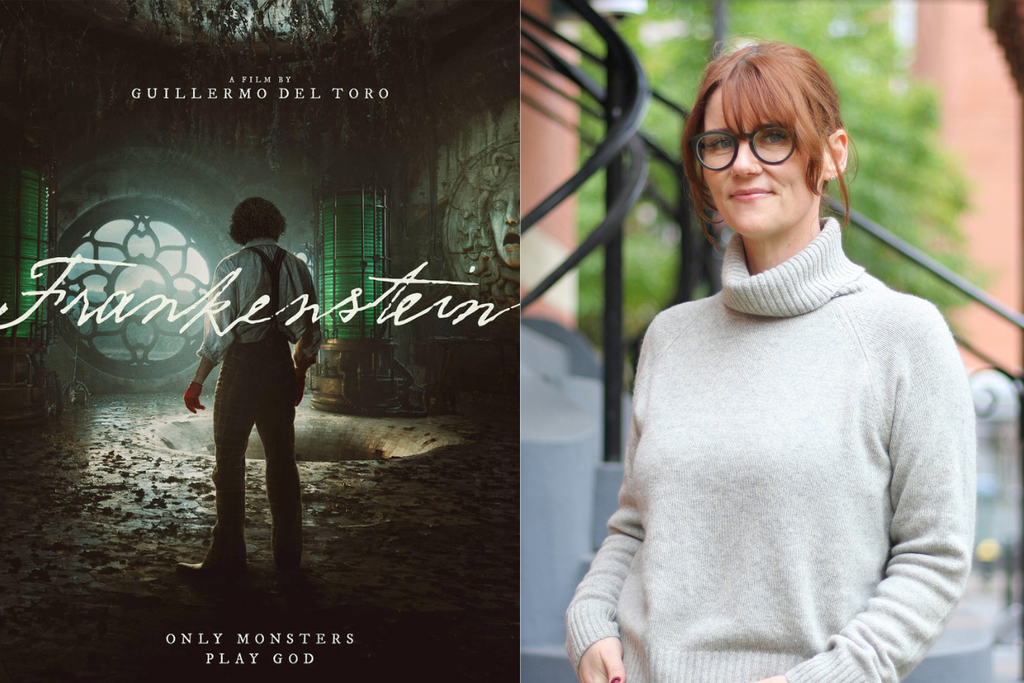
Annie Buck (GMS‘20), a fourth-year PhD student in health services and policy research, recommends the 2025 film Frankenstein from director Guillermo del Toro. An adaptation of Mary Shelley’s 1818 gothic novel by the same name, the film tells the story of a scientist who creates a monster by bringing life to a dead body. The story resonates deeply with Buck, who studied bioethics before completing a master’s degree in clinical research and conducting doctoral research on firearm injury prevention.
“Everybody knows the story about Frankenstein, but the way that it was done [in the film] and the themes that it brought up, especially around science, medicine, ethics, and humanity, I was very taken by it,” says Buck. “What an amazing story on so many different levels, but also a true look into [the question], just because we can do it, should we do it?”
Shark Heart: A Love Story / Mallory Bersi
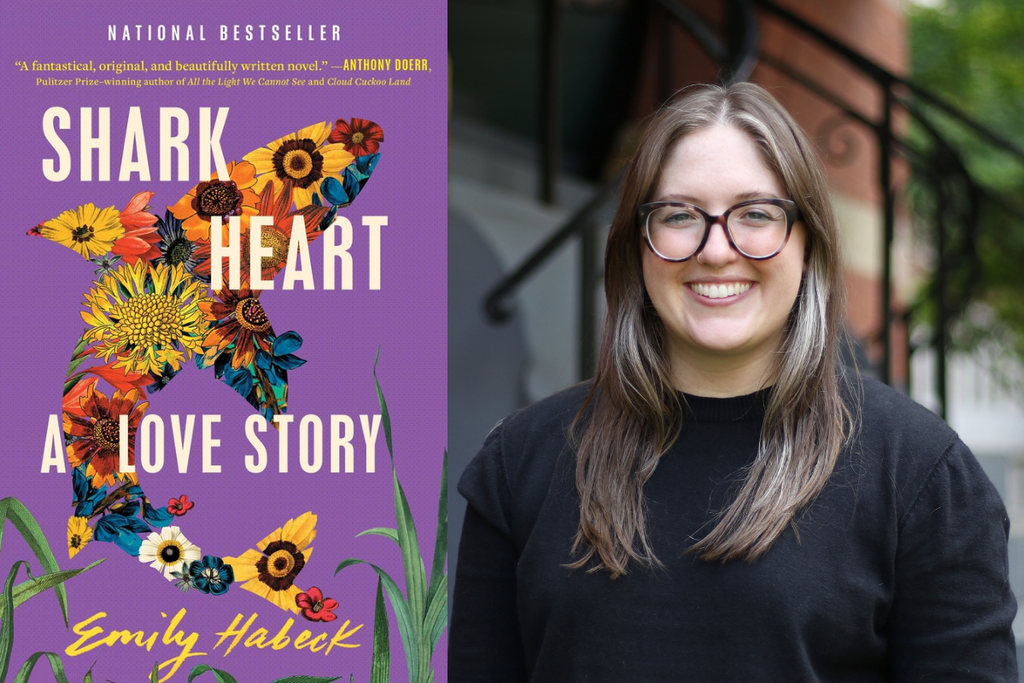
Mallory Bersi (SPH’19), managing editor of Public Health Post, recommends the book Shark Heart: A Love Story by Emily Habeck. Written with some of the most tender and unique prose Bersi says she has ever read, Habeck’s debut novel explores motherhood, marriage, metamorphosis, and letting go. The story also takes place in a North Texas town that is near and dear to Bersi’s own heart.
“It’s a classic story of girl meets boy, boy turns into great white shark,” says Bersi, through laughter. “This book is a beautiful exploration of love, loss, and how to cope when faced with an unimaginable diagnosis. I laughed, I cried, and I have recommended it to so many people in my life.”
The Black Angels: The Untold Story of the Nurses Who Helped Cure Tuberculosis / Monica Wang
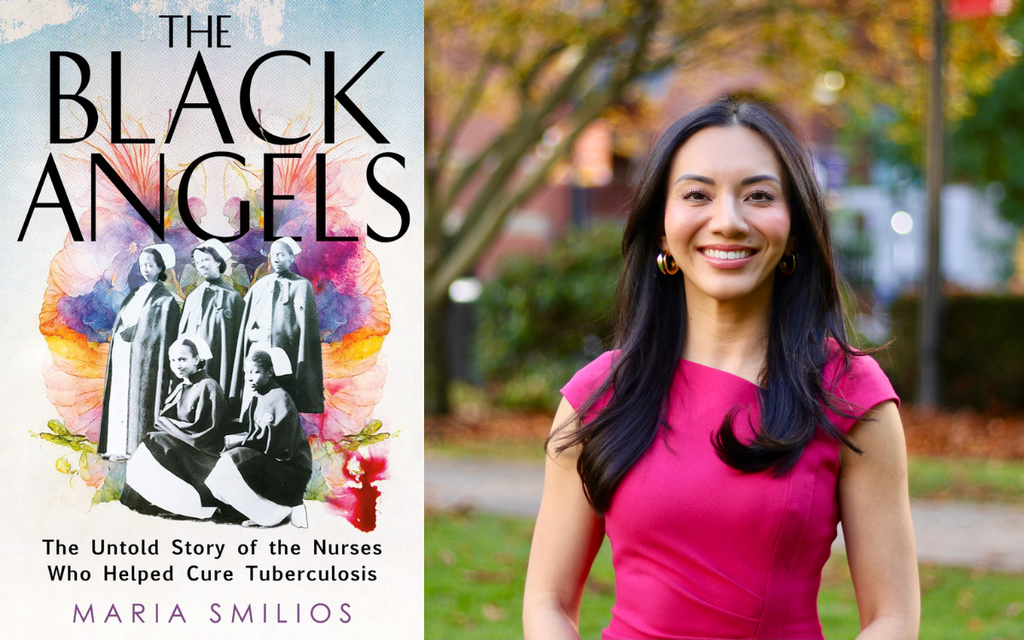
Monica Wang, associate professor of community health sciences and author of the forthcoming book The Collective Cure: Upstream Solutions for Better Public Health, recommends The Black Angels: The Untold Story of the Nurses Who Helped Cure Tuberculosis by Maria Smilios.
Smilios’ book uncovers a chapter of public health history that has long been overlooked. In the late 1920s and early 1930s, as tuberculosis continued to devastate communities and Sea View Hospital in New York City struggled to keep its wards staffed, a group of Black nurses from the South answered the call. They arrived in New York with hopes of professional opportunity and quickly found themselves on the frontlines of one of the deadliest epidemics of the era. Working under extreme conditions and facing persistent racism, these nurses provided care to thousands of patients and supported the scientific breakthroughs that eventually led to effective TB treatments. Their contributions were transformative, yet their role was largely forgotten.
“This is an extraordinary account of courage, care, and the systems that shape who gets remembered,” says Wang. “The book highlights how race, gender, labor, and health intersect in ways that echo many of the themes in The Collective Cure. It is a powerful reminder of the people — often women, often communities of color — whose contributions made modern public health possible.”
